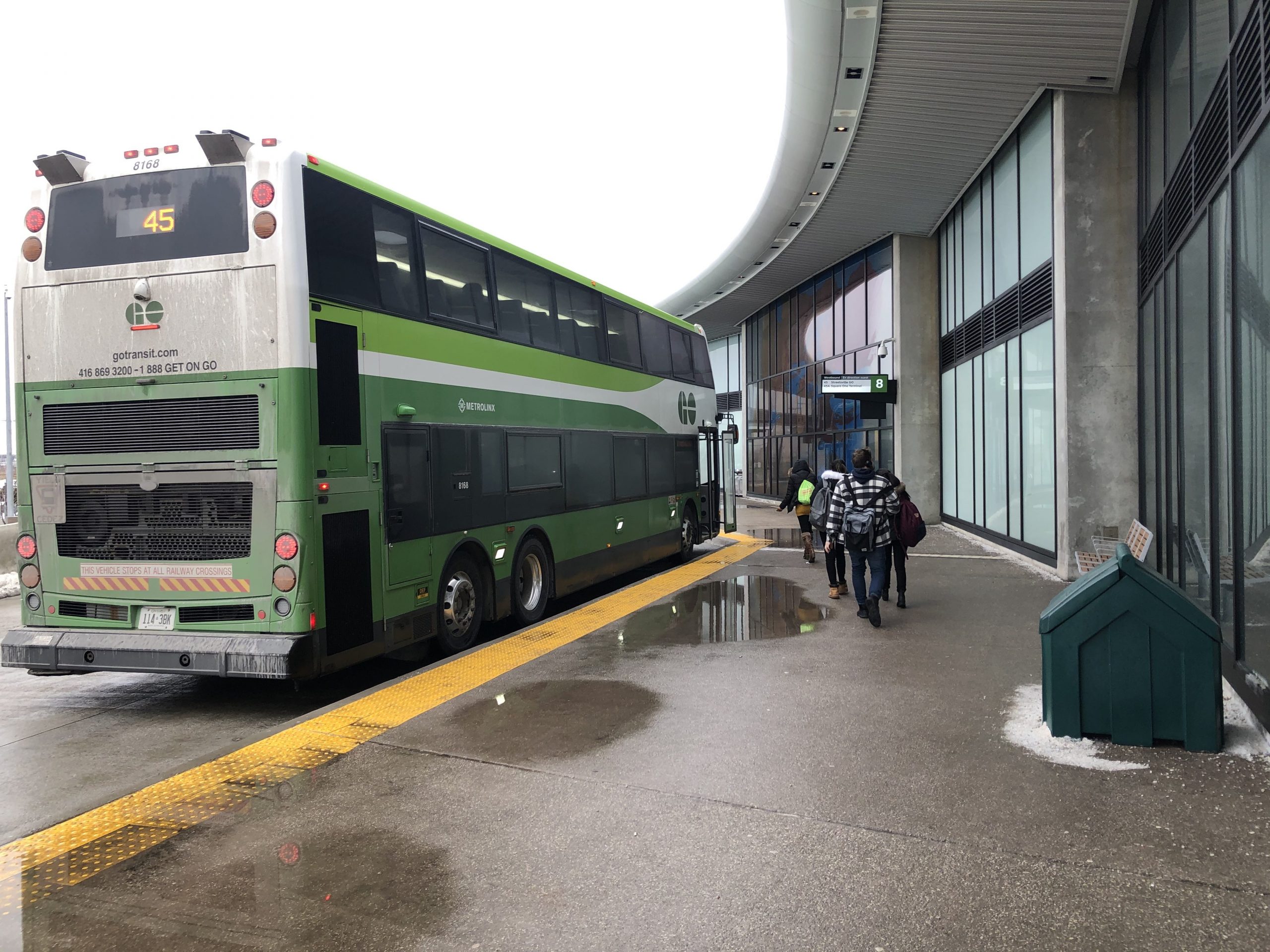Sergiy Slipchenko | Staff Writer
Featured Image: Commuters from the Highway 407 GO station will have to pay an increased amount to get to the Keele campus. | Courtesy of Jordan Chu/Excalibur
The Discounted Double Fare program allowed commuters to pay $1.50 less when transferring from GO services to the TTC. As was agreed by Metrolinx and the provincial government, the subsidy will end on March 31, and the discount will no longer apply.
This change would force students to pay an additional $3 to travel to and from the Highway 407 station, after paying for GO bus fare.
“Transit users could be paying up to $780 more each year,” says spokesperson Shelagh Prizey-Allen for TTCriders — an advocacy group for better transit in Toronto.
It was less than two years ago that the GO Bus services changed their routes from the Keele campus bus loop to the Highway 407 station. The decision was controversial and left students bitter over the increased expanse and travel time.
For most commuters, the biggest issue with the decision was the lack of a proper explanation. On top of that, the decision was implemented a month early.
Now to make matters worse, the Discounted Double Fare program will end without any planned replacement or accommodation.
The YFS was doing their part on February 27 by handing out flyers and informing commuters at the York subway station. YFS Vice President of Campaigns and Advocacy Jasmine Hawamdeh spoke out on the issue.
“York students have already had to pay the price of provincial cuts to transit,” said Hawamdeh.
“As a commuter school, many students already pay double the fare to access their education. MPPs must do more for York students by bringing the buses back onto the Keele campus and continuing to fund the co-fare.”
Metrolinx was asked whether any accommodation would be available for students who only travel two stops to get to university. Unable to answer that question, they instead explained that the subsidy failed to properly cover the expense of the transfer program.
“The program was funded by the province up to $18.4 million annually and exceeded this allotted budget each year — by $2.6 million in 2018-2019 and is expected to do so by $6.7 million in 2019-2020,” says Metrolinx representative Scott Money. “Metrolinx has covered the $9.3-million shortfall since the launch of the program.”
However, this is an issue between Metrolinx and the government and does nothing to resolve the issue of commuters having to pay double. York students are not the only ones affected. Community leaders, like Councillor Mike Layton, have spoken against the termination of the transfer.
“Cancelling the GO-TTC fare is a step in the wrong direction that will mean higher fares and fewer people using public transit,” said Councillor Layton. “Toronto needs full and affordable fare integration, including a single fare for all transit trips within the City of Toronto.”
Ontario NDP MPP for the University-Rosedale riding Jessica Bell raised the issue of the environmental impact that this will bring forth, as some commuters will surely turn away from public transit.
“We should be encouraging people to take public transit, in order to reduce pollution and congestion,” says Bell.
Several organizations across the GTA handed out flyers to inform commuters about the situation. The goal is for people to reach out to their MPPs and get them to support the commuters on this issue.




